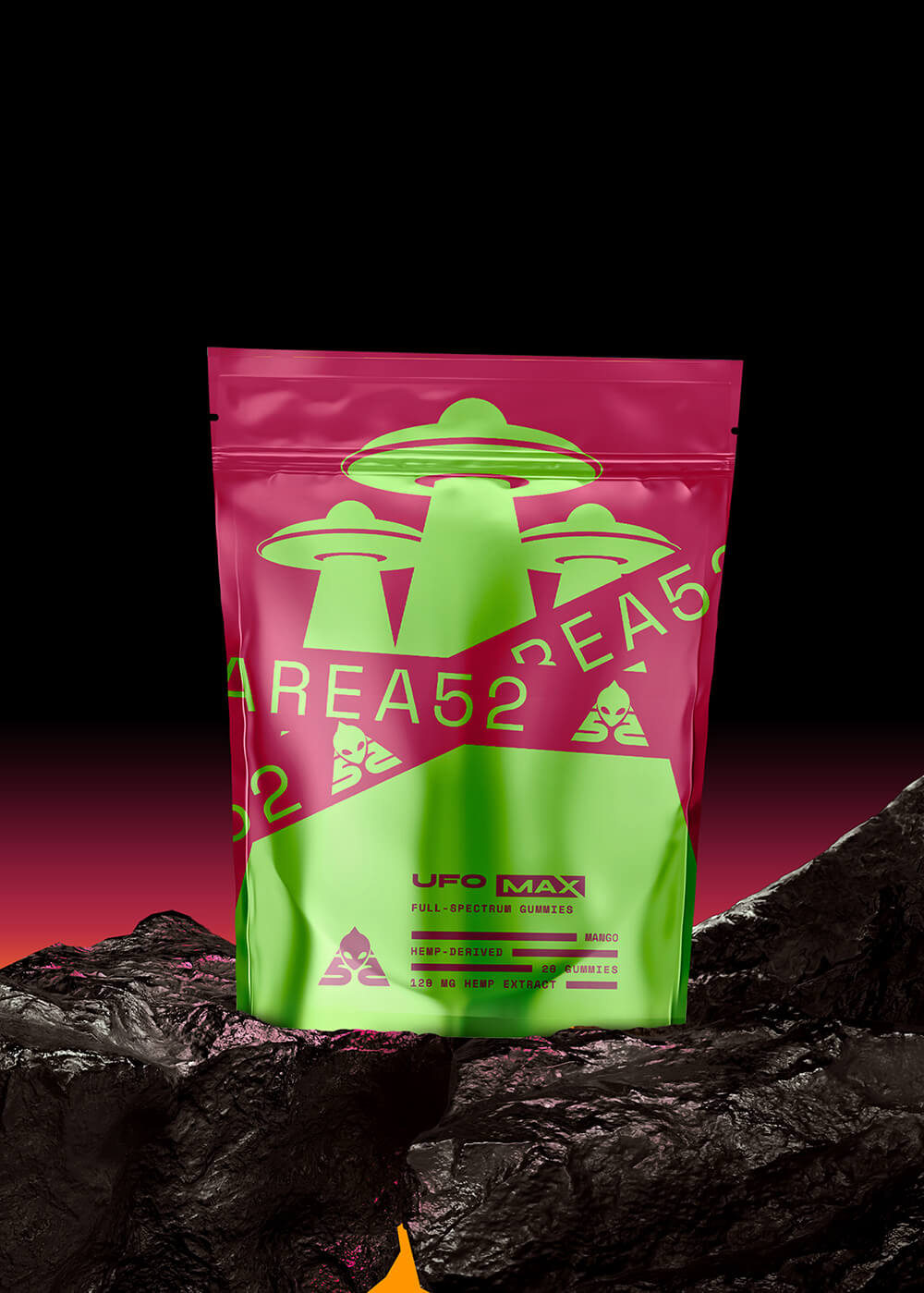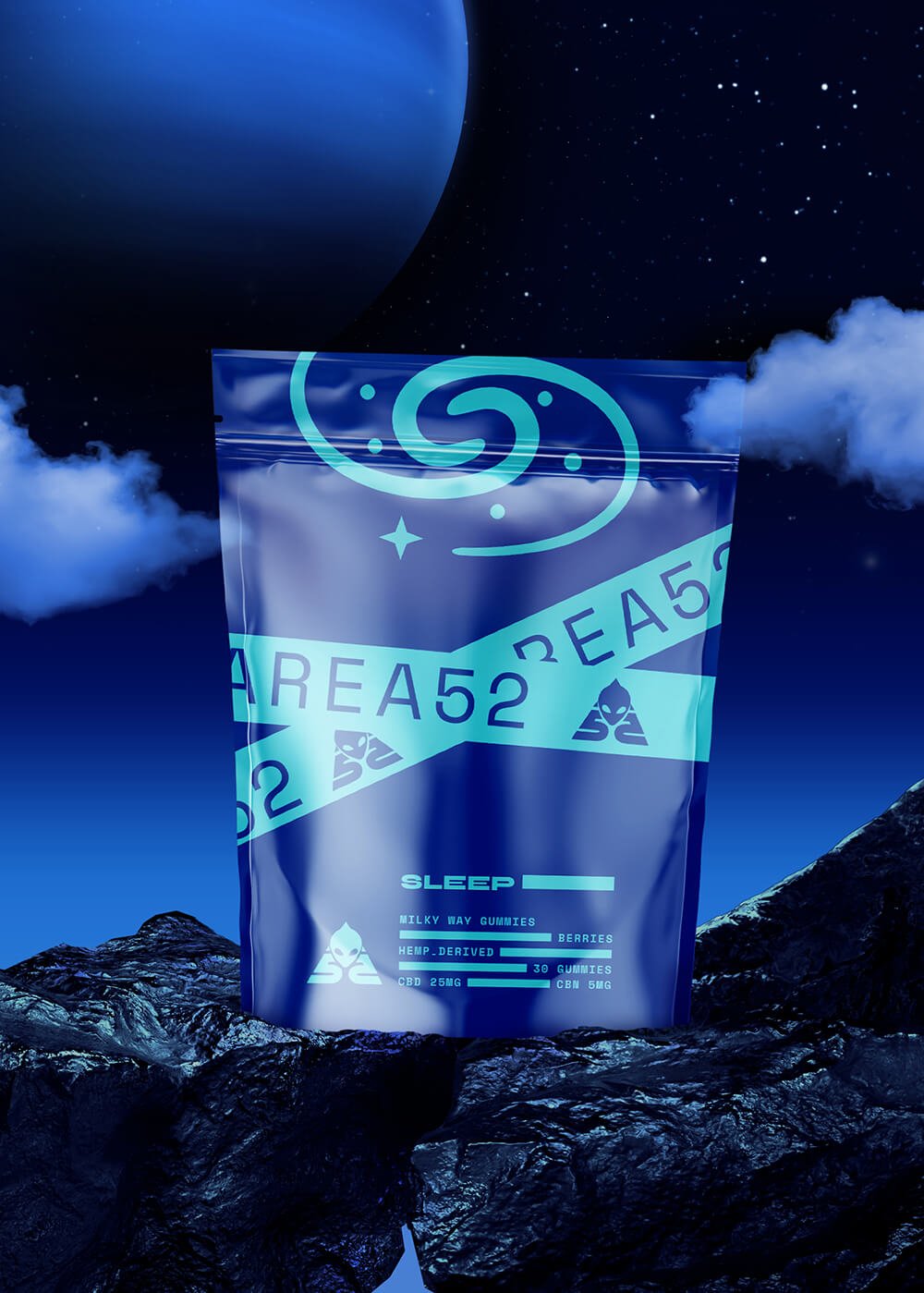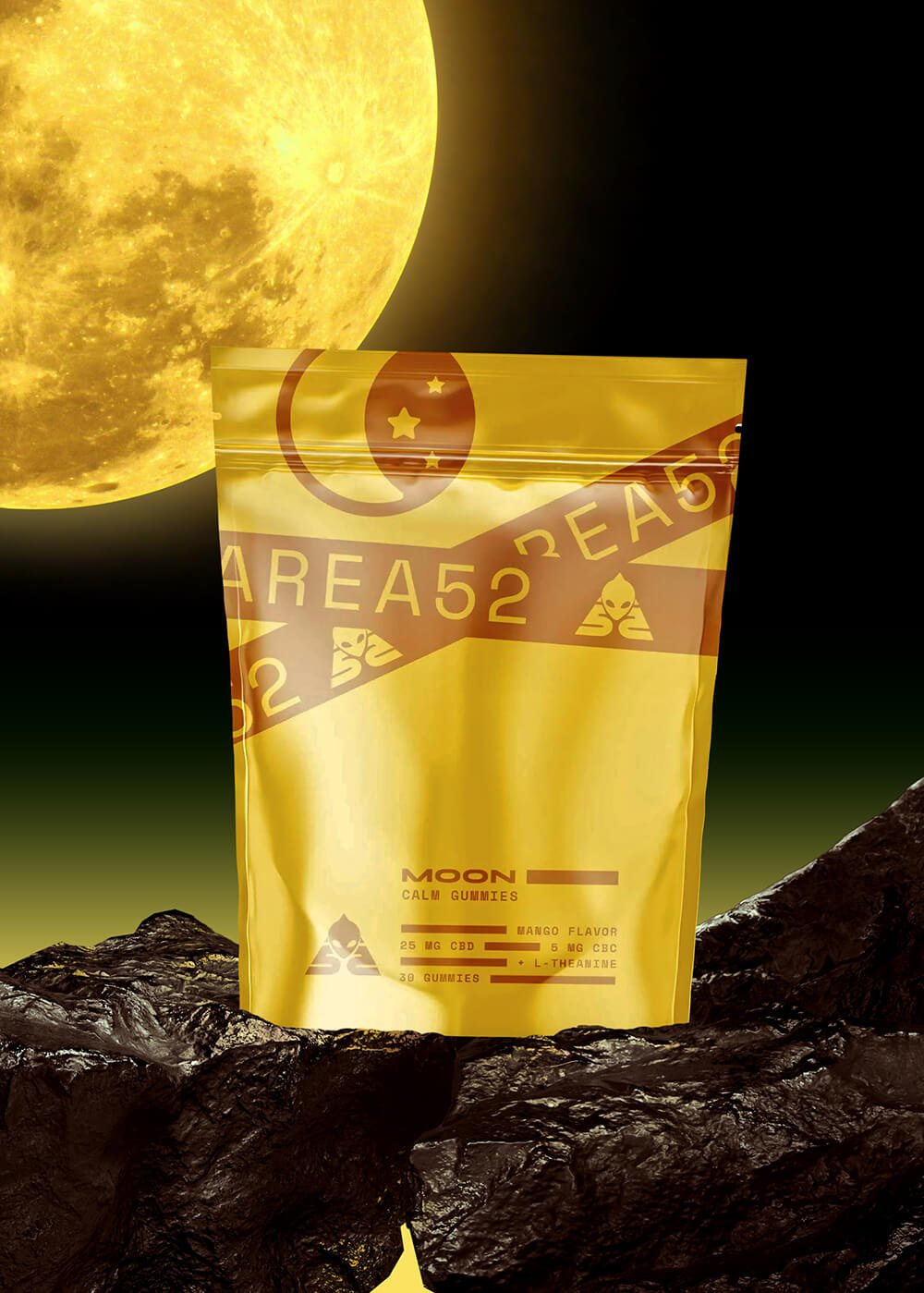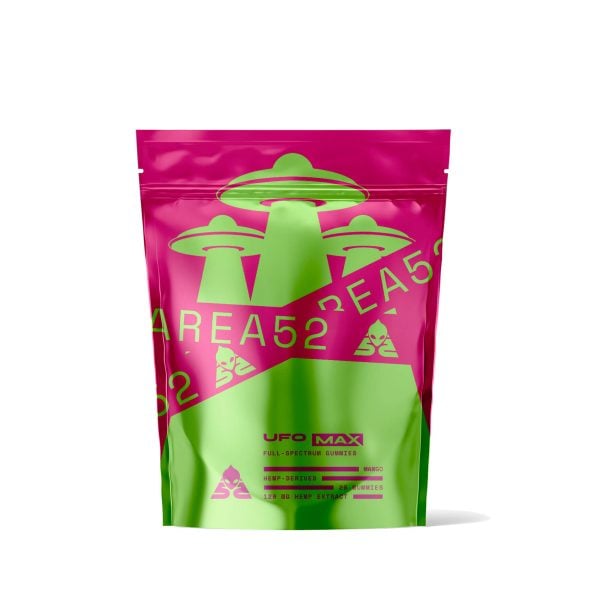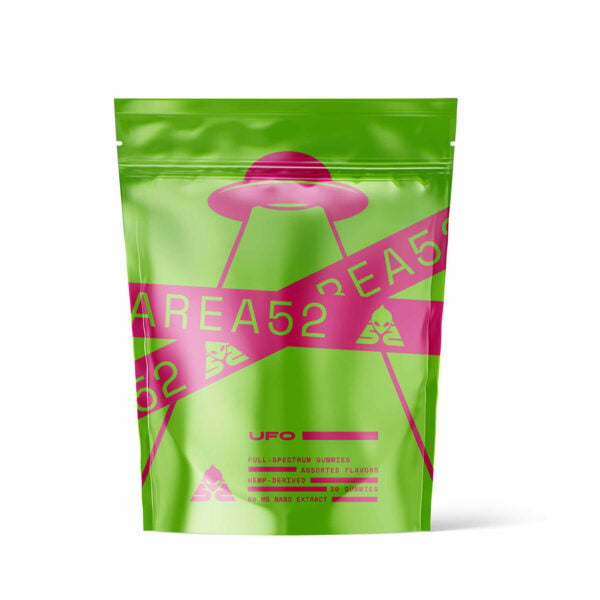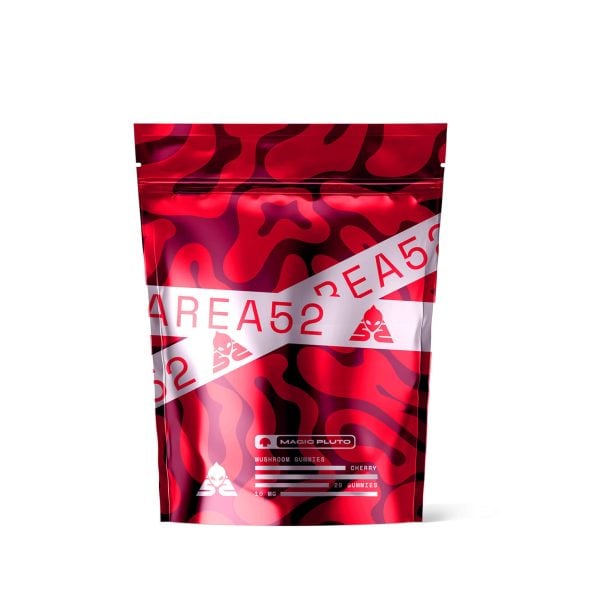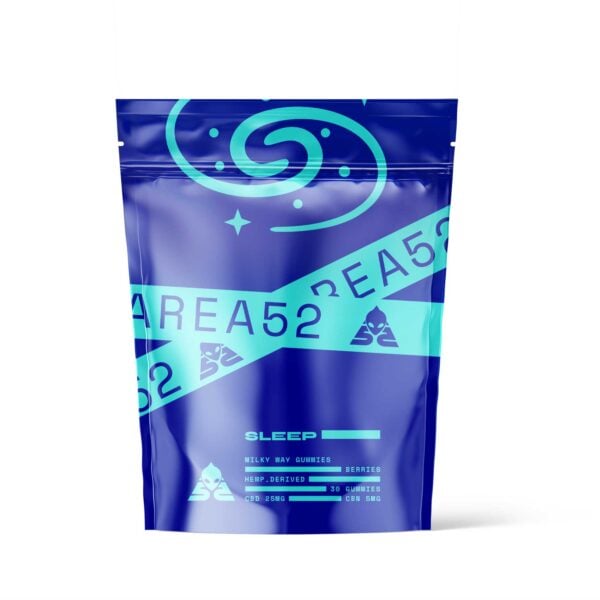Does Delta 8 THC Show Up On a Drug Test?
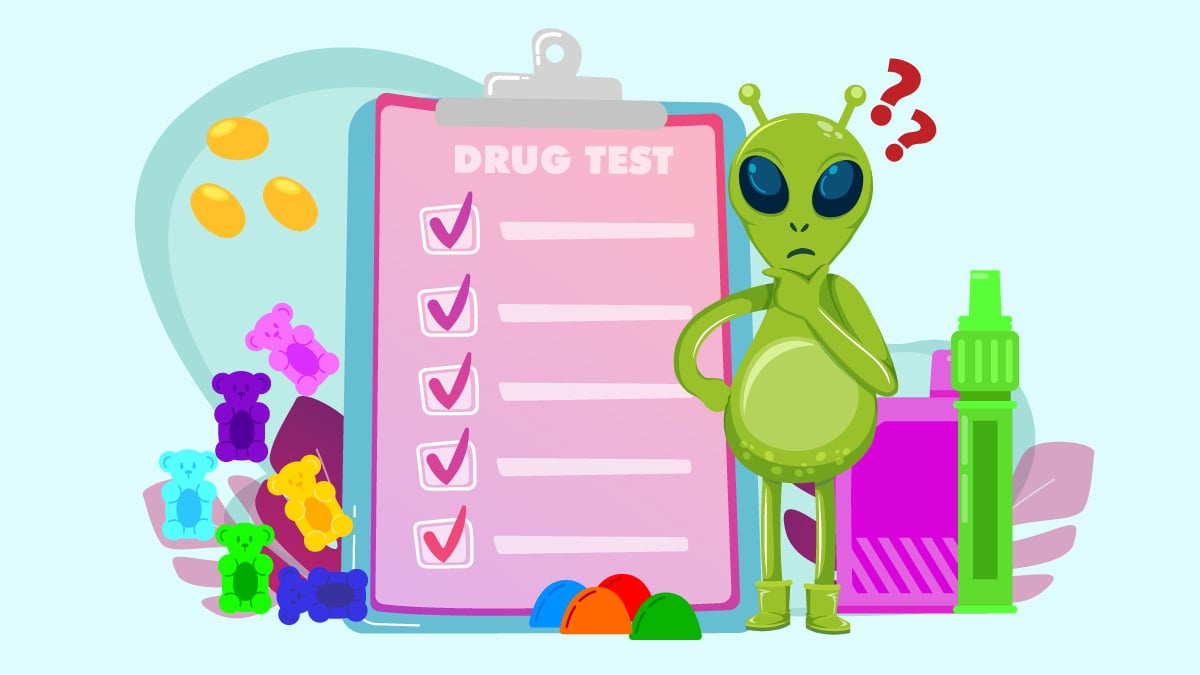
Delta 8 THC is now in the spotlight in the cannabis world. If you’re an avid cannabis user — whether you take CBD or THC products and other cannabinoids — you’ve probably heard about this newcomer by now.
It’s milder, more stable, and less trippy than delta 9 THC. Some call it the “nicer younger sibling” of THC because of its gentler intoxicating effects.
The above features have quickly given rise to the surge of weed users switching from delta 9 THC to delta 8. But what about delta 8 THC and drug testing?
Can delta 8 THC cause you to fail a drug test? After all, it’s a type of THC molecule.
In this article, we dive into the chemistry of delta 8 THC and its effects on workplace drug tests.
Delta 8 vs. Delta 9: The Two Versions of the THC Molecule
Delta 8 THC is a minor cannabinoid found in hemp and marijuana plants. There are no specific high-delta 8 THC cannabis plants; instead, delta 8 begins to form when delta 9 THC degrades over time.
This analog is milder and more mellow in terms of psychoactive effects.
The cognitive effects of delta 8 THC can be mildly invigorating (in lower doses) or cause couch-lock (in higher amounts). The incidence of anxiousness and paranoia after taking delta 8 products is very low, which is why many people choose it over the standard version of THC.
As an analog substance, delta 8 THC is almost identical chemically to delta 9 THC, with a minor difference in the arrangement of their chemical structure. Delta 8 THC has a double bond at the 8th carbon chain, while for delta 9 THC, this bond is located at the 9th chain.
This subtle difference makes delta 8 THC about half as potent as delta 9, meaning you’d need to use twice the amount to experience a similar intensity of effects.
Scientists, and people who’ve tried delta 8, claim this compound has many similar effects, such as providing relaxation and uplifted feelings.
Safety Concerns Surrounding Delta 8 THC Use
The FDA has not approved delta 8 for food products or specifically recognized its potential health advantages. Although some manufacturers incorporate different cannabinoids, the FDA maintains concerns about labeling accuracy, purity, and dosage of cannabis products. In fact, the agency frequently issues warning letters to companies making unverified health claims.
Without strict guidelines, delta 8 THC items marketed as “health supplements” or “food supplements” are still in a regulatory limbo, highlighting an urgent need for clearer policies.
Delta 8 THC currently remains in a legal gray area, and despite the warnings, products containing this cannabinoid are widely accessible. Some are even being sold in convenience stores or gas stations, increasing safety concerns, especially among minors and pediatric patients.
According to a study published in the Cannabis Cannabinoid Res, accidental exposure to delta 8 THC has resulted in medical emergencies, prompting calls to poison control centers and emergency department visits.
We need more cannabis research on the safety of delta 8 use, but until then, consumers should remain cautious, read labels, and only buy from reputable sources to ensure product safety. They should also ask their doctor about the benefits and dangers of using THC.
How do Drug Tests Work?
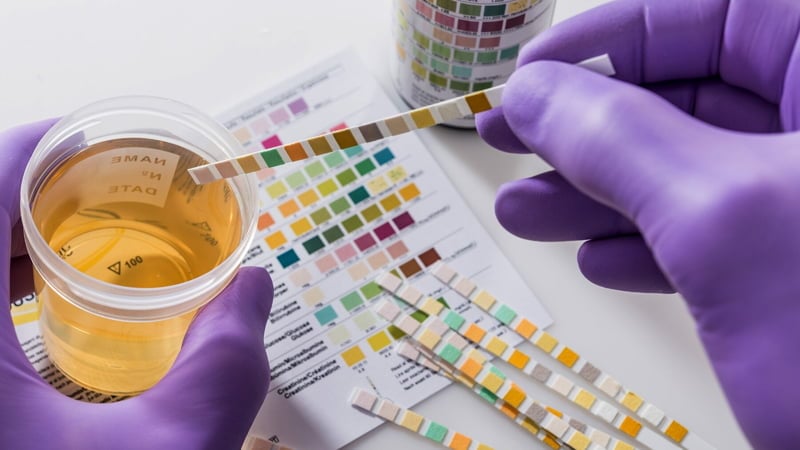 When you take any substance, be it for recreational or medical purposes, your body needs to metabolize it in order to register the effects of these substances. As your liver processes them, their residual metabolites circulate in your urine, blood, sweat, saliva, hair, and lungs.
When you take any substance, be it for recreational or medical purposes, your body needs to metabolize it in order to register the effects of these substances. As your liver processes them, their residual metabolites circulate in your urine, blood, sweat, saliva, hair, and lungs.
Even after all noticeable effects of the substance you’ve taken disappear, its ‘track’ remains in these locations and can be detected using a drug test.
Workplace drug tests look for the metabolites of illicit drugs. Whether you’re a public service officer, professional driver, or corporate employee, these tests can give you sleepless nights since these tests easily find delta 9 THC.
However, when you’re tested for drugs, you’re not actually having your THC levels checked. These tests look for the metabolites produced by your body when you’re done processing THC. In the case of any type of THC, this metabolite is usually THC-COOH, which can linger in your system days after the actual date of consumption — and even longer if you’re a heavy user.
Since THC is fat-soluble, it doesn’t get flushed out of the body as easily as water-soluble molecules.
So, long story short, drug tests are designed to prove that you’ve been using drugs, but they don’t look for the actual amount consumed.
What Substances Does a Drug Test Look for?
In most cases, drug tests detect the following substances:
- Alcohol
- Amphetamines
- Barbiturates
- Benzodiazepines
- Cocaine
- Marijuana (Delta 9 THC)
- Opioids
What Types of Drug Tests Are There?
Illicit drugs in the body can be detected with two varieties of urine tests:
- The Immunoassay (IA) Test – it’s a quick biochemical test to check for the presence of any macromolecule in a tested sample. However, it often yields inaccurate results.
- The Gas Chromatography-Mass Spectrometry (GC-MS) – is a combined analytical test that uses both gas chromatography and mass spectrometry. This ensures more accurate results but also requires more time and precision.
Besides the urine test, hair follicles may also be tested to look for the presence of THC in the system beyond a period of 90 days. Blood drug tests and saliva road tests are usually used among drivers after an accident or during road control.
Does Delta 8 THC Show Up On a Drug Test?
There’s no specific delta 8 THC drug test, but yes, it can still trigger a positive result.
Delta 9 and delta 8 are very similar when it comes to how they are processed by the human body. Delta 8 THC is simply a less potent isomer of delta 9. Both of them have psychotropic properties, and both can be detected on a drug test.
A urine test isn’t advanced enough to distinguish between delta 9 and delta 8 THC. Since both compounds break down to the same metabolites — THC-COOH — the test would indicate drug use in both cases.
That means that delta 8 THC will most likely show up on a drug test if you’ve consumed it recently.
Interestingly, drug tests can also recognize metabolites of other cannabinoids, such as CBC, CBG, and CBN, which is why professional athletes can only use CBD isolate if they want to pass a drug test undetected.
The upper limit for the amount of THC-COOH in a person’s blood is 50 ng/ml. However, traces of metabolites from delta 8 THC have a lower cut-off mark — at 30 nG/mL.
If you only take the IA test, then you can easily fail it. Fortunately, you can easily save your job by asking your employer to conduct the gas chromatography test, as it recognizes only the exact type of delta 9 metabolites, leaving out other types of THC.
How Long Does Delta 8 THC Stay in Your System?
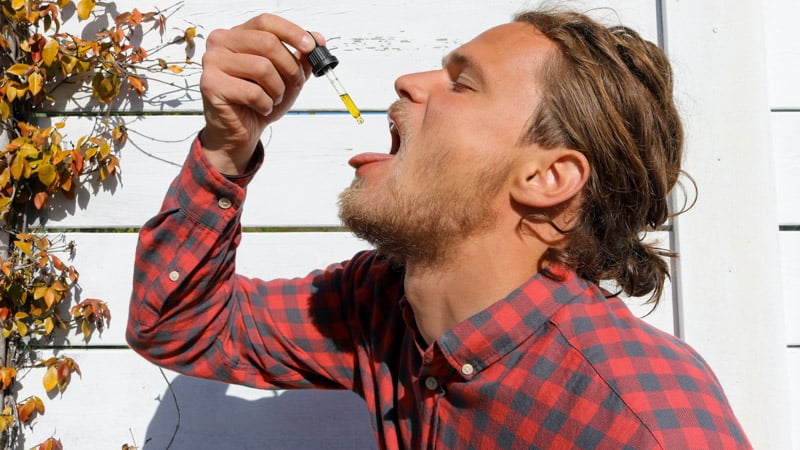 The body can show signs of substance use even after its effects dissipated long ago.
The body can show signs of substance use even after its effects dissipated long ago.
Although delta 8 THC is a less potent analog of delta 9 THC, the body can still store it for a considerable duration.
Depending on the type of test you’re taking, the drug’s record can stay with you from as little as 2 days to even 2 months or longer.
According to some experts, heavy use of delta 8 could leave its metabolites in the urine for 30-60 days.
But then again, this time span is not the same for everyone. Numerous variables, such as your age, weight, metabolism, level of hydration, the drug’s half-life, and frequency of cannabis use, can affect the time delta 8 THC stay in your system.
How to Pass a Drug Test When You’re a Delta 8 User?
Regular consumption of large amounts of water could help you get rid of the THC metabolites faster, but if you know of an upcoming drug test, we suggest that you pass on that delta 8 until you know you’ll be in the clear.
The general rule of thumb is 3-4 weeks, but as we said, the actual time delta 8 THC will stay in your system will mostly depend on consumption habits and the speed of your metabolism.
You can obtain an independent lab test before the actual drug test at work to check for the presence of THC-COOH in your urine. Be aware, though, that at-home drug testing kits may provide inaccurate results.
Delta 8 THC & Drug Testing FAQ
How is delta 8 THC different from delta 9 THC?
Delta 8 is an analog of delta 9 THC found in both hemp and marijuana. It is roughly half as potent as delta 9 THC, owing to it to a minor difference in its chemical makeup. In essence, it’s a mirror-like reflection of delta 9 THC but with milder psychotropic properties.
Will I pass a drug test if I use delta 8 THC?
It’s quite likely that delta 8 THC will show up on a drug test, as it shares a lot of similar traits with delta 9 THC. However, if your employer allows for the second level of testing, you can ask them to run gas chromatography and mass spectrometry; they will provide more accurate results because they look specifically for the combination of metabolites created by delta 9 THC.
What types of drug tests look for THC?
Aside from the standard urine tests, THC may also be detected in your system by checking your saliva, hair, or blood, all of which have their specific testing procedure and equipment.
Is delta 8 THC legal?
Theoretically speaking, delta 8 THC is legal on a federal level because it can be extracted from hemp plants. Hemp was legalized by the 2018 Farm Bill, which removed it from the list of controlled substances. As long as hemp-derived products contain 0.3% of delta 9 THC (or less), they can be legally purchased in the United States.
That being said, 13 states have banned the sale of delta 8 THC, considering it a legal grey area. Until the federal government clarifies the legal status of delta 8 THC, you won’t buy it in Alaska, Arkansas, Arizona, Colorado, Delaware, Idaho, Iowa, Kentucky, Mississippi, Montana, New York, Rhode Island, and Utah.
Final Thoughts: Does Delta 8 THC Show Up On a Drug Test?
Despite the little research done on delta 8 THC, it has quickly earned a good reputation among cannabis users due to its mild psychoactive properties and a much lower likelihood of triggering stress and paranoia. It’s also legal on a federal level, which makes it an appealing alternative to weed for people who don’t live in states with a legal cannabis market.
However, if you have a job that involves taking regular drug tests, you should be aware that delta 8 THC can show up on a workplace drug test. That’s because these tests aren’t made to distinguish between different versions of THC — they simply look for its metabolites, which are almost the same for delta 8 and delta 9.
The only way to save your job after failing the first drug test is to ask for secondary testing with a method that can separate the delta 9-specific metabolites from those left by your delta 8 product.
But the best practice to save your position is to let your body cleanse from THC and enjoy your greens once you’ve passed the test.
Have you ever failed a drug test after taking delta 8 THC? Let us know in the comments!
Frequently Asked Questions
1. How is delta 8 THC different from delta 9 THC?
Delta 8 is an analog of delta 9 THC found in both hemp and marijuana, which are types of the Cannabis sativa plant. It is roughly half as potent as delta 9 THC, owing to it to a minor difference in its chemical makeup. In essence, it’s a mirror-like reflection of delta 9 THC but with milder psychotropic properties.
2. Will I pass a drug test if I use delta 8 THC?
It’s quite likely that delta 8 THC will show up on a drug test, as it shares a lot of similar traits with delta 9 THC. However, if your employer allows for the second level of testing, you can ask them to run gas chromatography and mass spectrometry; they will provide more accurate results because they look specifically for the combination of metabolites created by delta 9 THC.
3. What types of drug tests look for THC?
Aside from the standard urine tests, THC may also be detected in your system by checking your saliva, hair, or blood, all of which have their specific testing procedure and equipment.
4. Is delta 8 THC legal?
Theoretically speaking, delta 8 THC is legal on a federal level because it can be extracted from hemp plants. Hemp was legalized by the 2018 Farm Bill (Agriculture Improvement Act), which removed it from the list of controlled substances. As long as hemp-derived products contain 0.3% of delta 9 THC (or less), they can be legally purchased in the United States.
That being said, 13 states have banned the sale of delta 8 THC, considering it a legal grey area. Until the federal government clarifies the legal status of delta 8 THC, you won’t be able to buy it in Alaska, Arkansas, Arizona, Colorado, Delaware, Idaho, Iowa, Kentucky, Mississippi, Montana, New York, Rhode Island, and Utah.
5. How Long Does Delta-8 THC Stay in Your Urine?
This varies greatly depending on personal factors like metabolism, body fat, and how often you consume delta 8 THC. Occasional users may clear metabolites in under a week, while daily users can test positive for 30 days or more. Lab tests generally look for THC-COOH, which is also a metabolite of delta 8, that can linger in the body for an extended period.
6. Is Delta-8 THC the Same as Regular THC?
No – delta 8 THC shares a similar chemical structure with delta 9 THC (often referred to as “regular THC”), but it’s less potent and tends to cause fewer reports of anxiety or paranoia. Despite these differences, most drug tests still detect both because they form similar metabolites. That said, delta 8 won’t necessarily help you avoid a positive result on a THC drug test.
7. Can I Get Fired for Using Delta-8 THC?
Yes. If your employer prohibits any cannabis products or drug use, testing positive for delta 8 THC can lead to termination or disciplinary action. Although federally legal when derived from hemp, delta 8 isn’t recognized differently from delta 9 on typical workplace screenings. Ultimately, it depends on the policies at your place of work and state or local regulations.
8. What Can Cause a Positive THC Urine Test Besides Smoking?
Many cannabis derivatives – including edibles, tinctures, and topical THC products – can lead to detectable metabolites. Non-psychoactive other cannabinoids, such as certain full-spectrum CBD oils containing trace THC, might also trigger a positive result. Even secondhand exposure in extreme cases has been reported, though it’s far less likely.
9. How to Fight a Positive Drug Test for THC?
You could request a more accurate confirmatory test like gas chromatography or mass spectrometry if you believe you’ve been falsely flagged. Consulting a legal or medical professional can help, particularly if you’ve been using hemp-derived delta 8 or CBD under the assumption it was THC-free. Always keep documentation of product ingredients and manufacturers you’ve purchased from, in case you need to dispute the result.
10. Does Secondhand Delta 8 Smoke Affect Drug Tests?
Secondhand exposure typically isn’t strong enough to produce THC-COOH in levels high enough to fail a drug test, although it’s not impossible in very confined spaces. Actual test failures from secondhand smoke are relatively rare. Still, cautious individuals often avoid any exposure before scheduled screenings.
References:
- Babalonis, S., Raup-Konsavage, W. M., Akpunonu, P. D., Balla, A., & Vrana, K. E. (2021). Δ8-THC: Legal Status, Widespread Availability, and Safety Concerns. Cannabis and cannabinoid research, 6(5), 362–365. https://doi.org/10.1089/can.2021.0097
